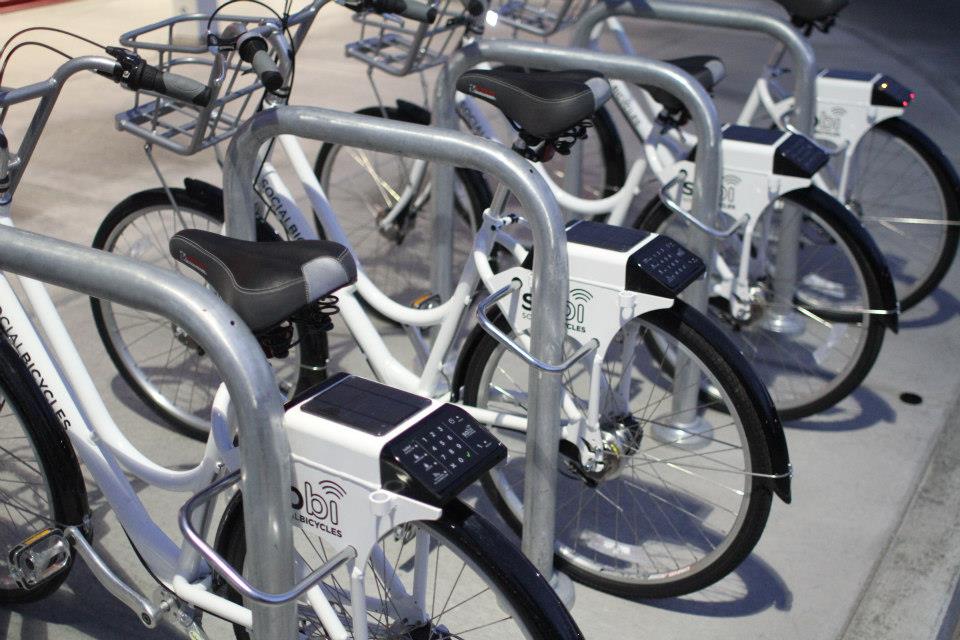
The Charm City Bikeshare project has hit another road block, delaying the launch at least until June or July 2015, Barry Robinson, Baltimore City’s transit and marine services chief, told Bike Shorts today. It’s the second significant delay this year in the effort to bring bike sharing to Baltimore and third in recent years.
The project first took a hit at the start of this year when Bixi, the Canadian company contracted to supply the bicycles and equipment, filed for bankruptcy. Fear not, city officials said at the time, funding for the project remained in place and a new supplier would be found.
A month after Bixi’s bankruptcy filing—not completely unexpected—Robinson, at Bike Maryland’s annual state symposium in Annapolis, said Social Bikes, a New York-based company bicycle supplier (above photo), had been selected to replace Bixi. Although a contract hadn’t been signed yet, Robinson noted at the time, Social Bikes was partnering with Portland-based Alta, the company that will operate Charm City Bikeshare, in other cities and that he expected the deal to be finalized soon.
That’s not going to happen now. At least not right away.
Robinson said the Baltimore City Department of Transportation (DOT) had been working on the assumption after Bixi’s bankruptcy filing that the State Highway Administration and Maryland Department of Transportation would not require the city’s DOT to put out another Request for Proposal (RFP) before identifying a substitute bicycle supplier. That turned out not to be the case, Robinson said, adding that he expects the new RFP to be finalized this summer. The start up cost of Charm City Bikeshare is being funded through the state’s Cycle Maryland initiative.
The projected launch of Charm City Bikeshare is now June/July 2015.
Robinson said Social Bikes still remains, along Bixi, recently purchased by Quebec businessman Bruno Rodi, B Cycle, whose previous attempt to bring bike sharing to Baltimore never came to fruition, and the new Bicycle Transit Systems, among the handful of companies likely to respond to the RFP. “It’s not like there are a lot of companies out there that do this,” Robinson said.
Phase I of the Charm City Bikeshare project calls for 250 bikes at the 25 stations. Phase II, which would double the size of Charm City Bikeshare, doesn’t have a firm timetable, Robinson said, adding that the city needs to find a lead sponsor, or several sponsors, to support the project before it can move forward with Phase II.
Capital Bikeshare, also operated by Alta, now has more than 300 bicycle docking stations in Washington, D.C. and surrounding metro area, with 2,600 bikes, 24,000 members—and 6.1 million trips under its belt since launching more than four years ago. According to Bikeshare.com, almost 50 U.S. cities now have bike-sharing systems, with more than two dozen, including Baltimore, in the works. New York City’s new bike-sharing program, Citi Bike, already has surpassed 7 million rides and has more than 100,000 members.
A Google map of bike-sharing programs around the world can be found here.
